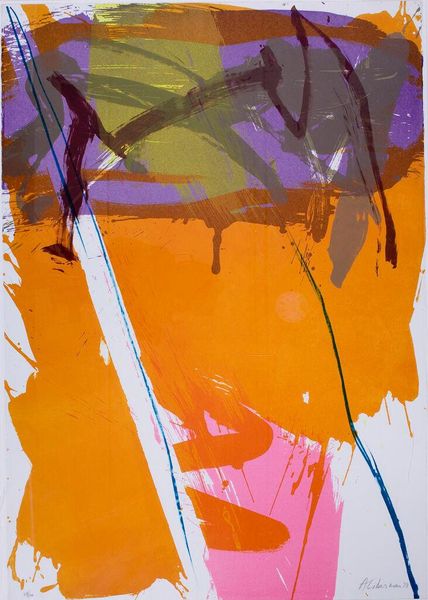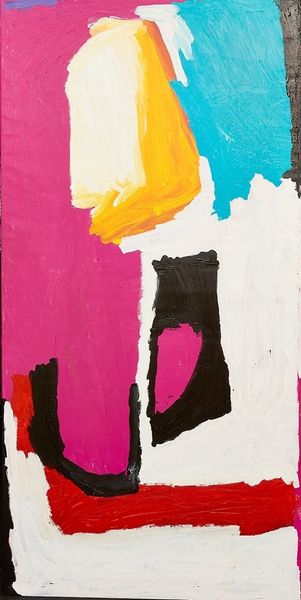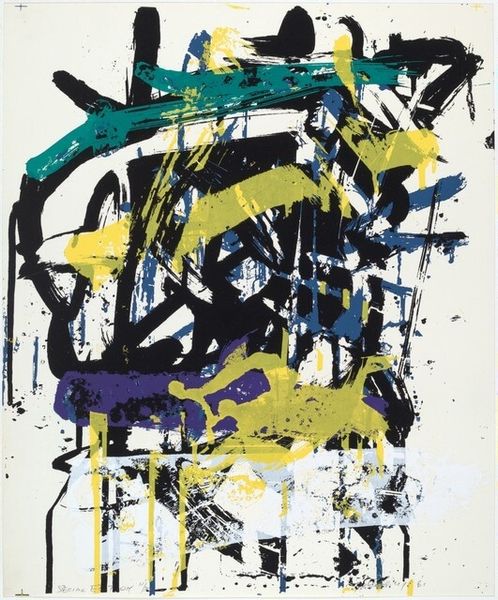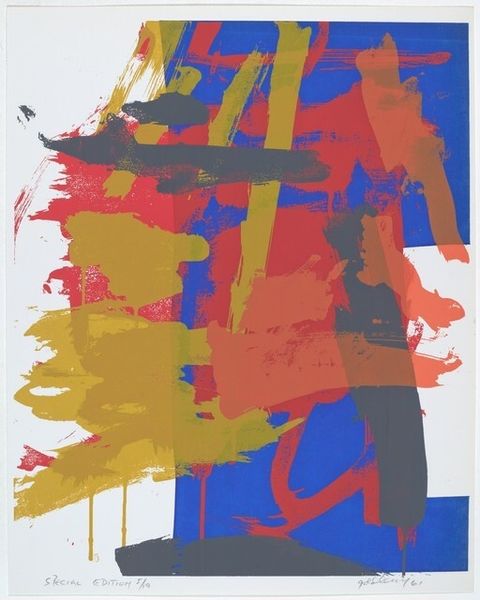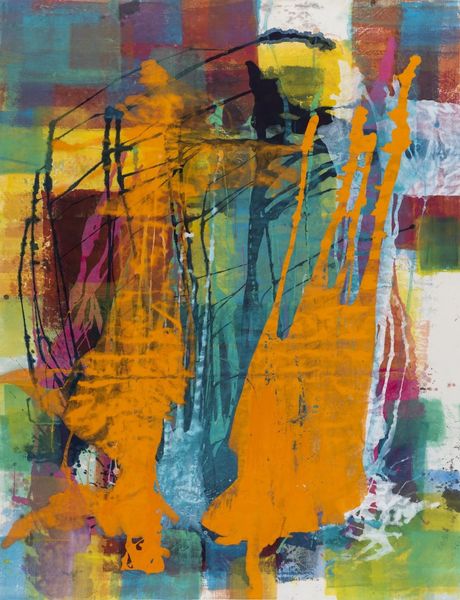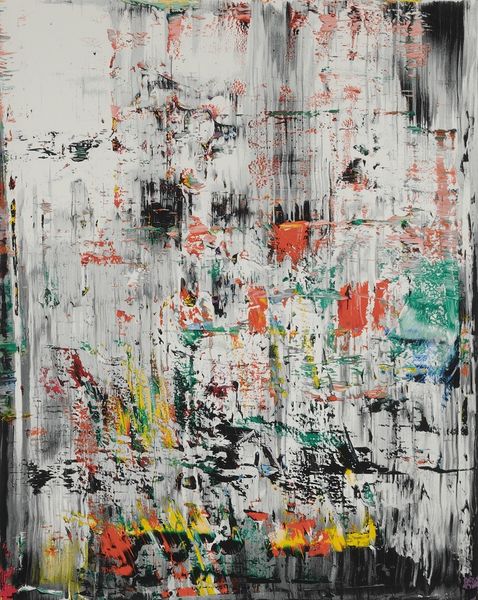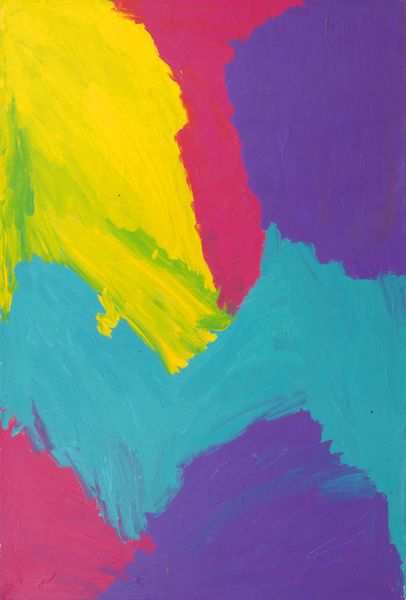
Copyright: Cameron Platter,Fair Use
Curator: Cameron Platter's 2017 piece, "Lambo," certainly makes a bold statement in acrylic on canvas. What's your initial impression? Editor: Chaotic, in the best way. There's an urgency here, a sense of something being aggressively asserted onto the canvas. The color choices, that intense purple and jarring orange, feel almost deliberately abrasive. Curator: Platter’s work frequently engages with contemporary South African culture, often through the lens of consumerism and political commentary. Abstract Expressionism certainly had an interest in engaging with the contemporary context after WWII. In what way could this engagement continue in a work such as Platter's "Lambo?" Editor: Right, the title "Lambo" hits you over the head! This is, without any attempt at subtle metaphor, referring to luxury cars— status symbols, excessive consumption. Then consider South Africa's history with colonialism and apartheid; conspicuous consumption becomes an active subject worthy of social commentary, one where that 'abrasive' quality you mentioned takes on new significance as part of that political critique. Curator: It's interesting to consider how the act of creating this type of painting relates to ideas around class. Abstract Expressionism has been accused of expressing the ideals of wealthy people, or even, of serving U.S. propaganda during the cold war. Can you see how Platter's technique differs in this respect? Editor: Absolutely. This isn’t about the individualistic genius quietly wrestling with existentialism. This has a frenetic, almost vandalistic energy. It reads as a reaction against structures, societal imbalances— like graffiti writ large as a high art form, challenging its own medium and how meaning is coded through painting. Curator: I'm drawn to how the "street" meets the "fine art" context here. The piece almost becomes a form of institutional critique through its adoption of styles that typically would not be found inside a gallery, let alone a museum! Editor: Precisely, and to take that a step further, whose streets? Who gets to express themselves publicly? This piece asks a loaded set of questions in a context often sanitized of these very realities. Curator: So, “Lambo,” beyond its aesthetic provocations, really acts as a starting point for some fairly important questions, then? Editor: A springboard! Which good art, in my opinion, should always aspire to be.
Comments
No comments
Be the first to comment and join the conversation on the ultimate creative platform.
